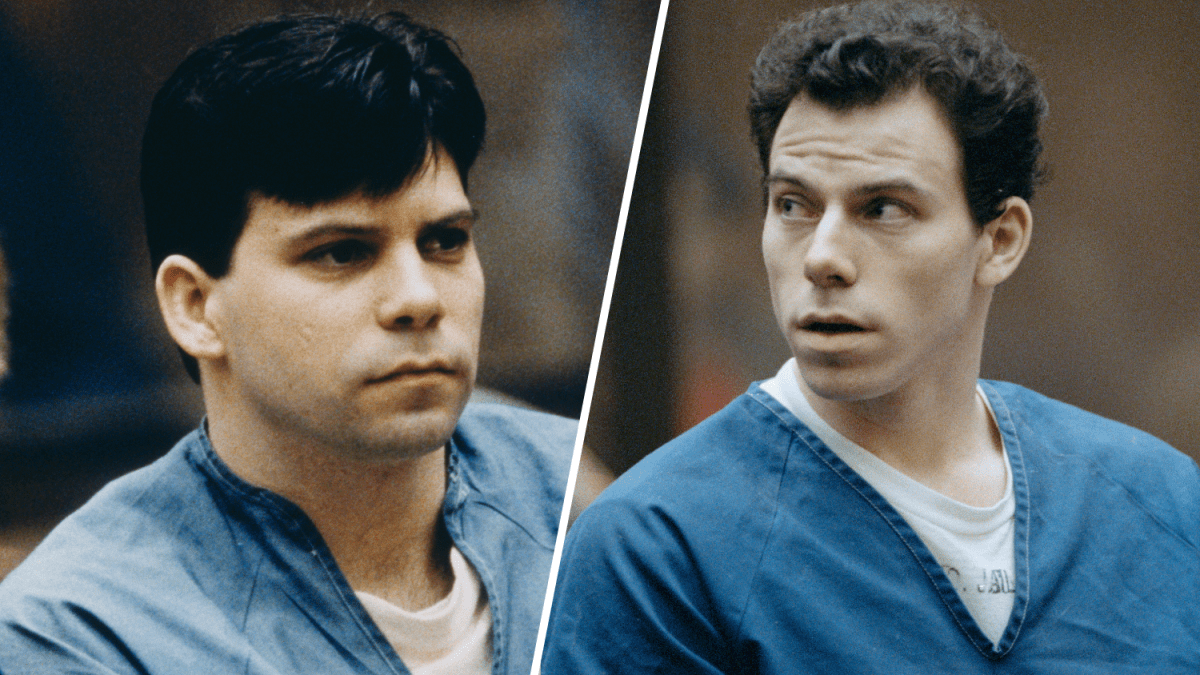California parole board commissioners denied parole for three years for both Lyle and Erik Menendez after the brothers were questioned during marathon hearings this week.
The parole hearings 36 years after the brothers, ages 57 and 54, shot and killed their parents in the family’s Beverly Hills home marked their most significant step toward freedom after more than 30 years in prison. The hearings started early Thursday and Friday and extended well into the evening as the panels’ evaluated whether the brothers currently pose an unreasonable risk of danger to society if they are released from prison after three decades behind bars.
In the end, both brothers were dealt the same fate — a three-year denial of parole, meaning the next eligible hearing date — for now — would be in 2028. Three years is the shortest denial length under California law.
Parole Commissioner Julie Garland said the panel found that there are still signs that Lyle Menendez poses a risk to the public, but urged him to not give up.
She characterized the next three years as “a way for you to spend some time to demonstrate, to practice what you preach about who you are, who you want to be. Don’t be somebody different behind closed doors.”
Under Proposition 9, passed by California voters in 2009 and known as Marsy’s Law, parole denial lengths can be established for 15, 10, 7, 5 or 3 years. Before the law, people serving life terms for murder with the possibility of parole could be denied for one to five years.
District Attorney Nathan Hochman’s office filed the paperwork this week to oppose the Menendez brothers’ retrial. This video was broadcast during the NBC4 News at 7 p.m. on Friday, Aug. 22, 2025.
The law allows for an earlier hearing date “if there is a change in circumstances or new information indicating the person may be suitable for parole.” Pursuing an earlier hearing involves a petition process and review.
The petition can be filed by the incarcerated person anytime after the first parole suitability hearing. The petition explaining why the hearing date should be moved up will be reviewed by a deputy parole commissioner.
Marsy’s Law also provided the parole board with discretion to advance a person’s parole hearing, if circumstances change or new information becomes available. This “administrative review” process focuses on inmates “who have a good possibility of being found suitable for parole.”
Specifically, anyone who has been denied parole for three years with a low or moderate risk assessment — both Menendez brothers were assessed as moderate risk — may be reviewed one year after their hearing.
At Friday’s hearing, Garland added that the brothers would be considered for an administrative review within a year and that a hearing could be moved up to as soon as 18 months.
The prison rule violations committed by Lyle Menendez were not as serious of Erik’s.
Cousin and long-time defender Anamaria Baralt referenced the three-year judgement in an Instagram post late Friday.
“A three-year denial means there will be an automatic review after a year,” she said. “If he’s infraction-free, hopefully no cell phone use, then he can advance to the board.
“Overall, a pretty disappointing week for us. But this is not a long time. They are going to get out. A couple of years ago, this was not even a possibility.”
The brothers’ first trial ended with jurors unable to reach verdicts, deadlocking between first-degree murder and lesser charges including manslaughter. The second trial, which began in October 1995 and lacked much of the testimony centered on allegations of sexual abuse by Jose Menendez, ended with both brothers being convicted of first-degree murder and conspiracy.
There are two other possible paths to freedom beyond the next parole hearing. A grant of clemency following a request to the governor and a habeus petition making its way through the legal system. The habeus petition is essentially a request for a new trial citing evidence that was not part of the first two trials in the early 1990s.
